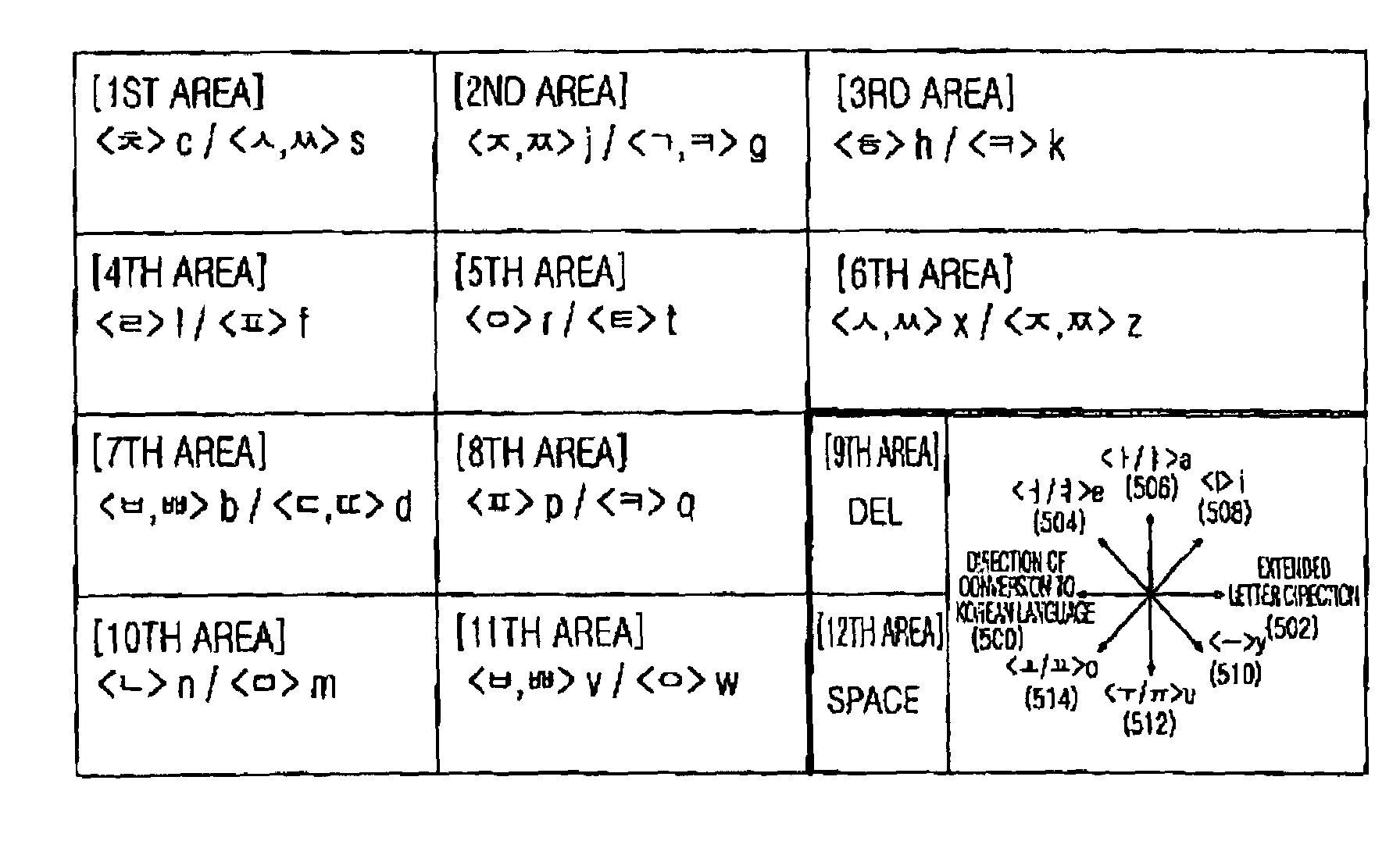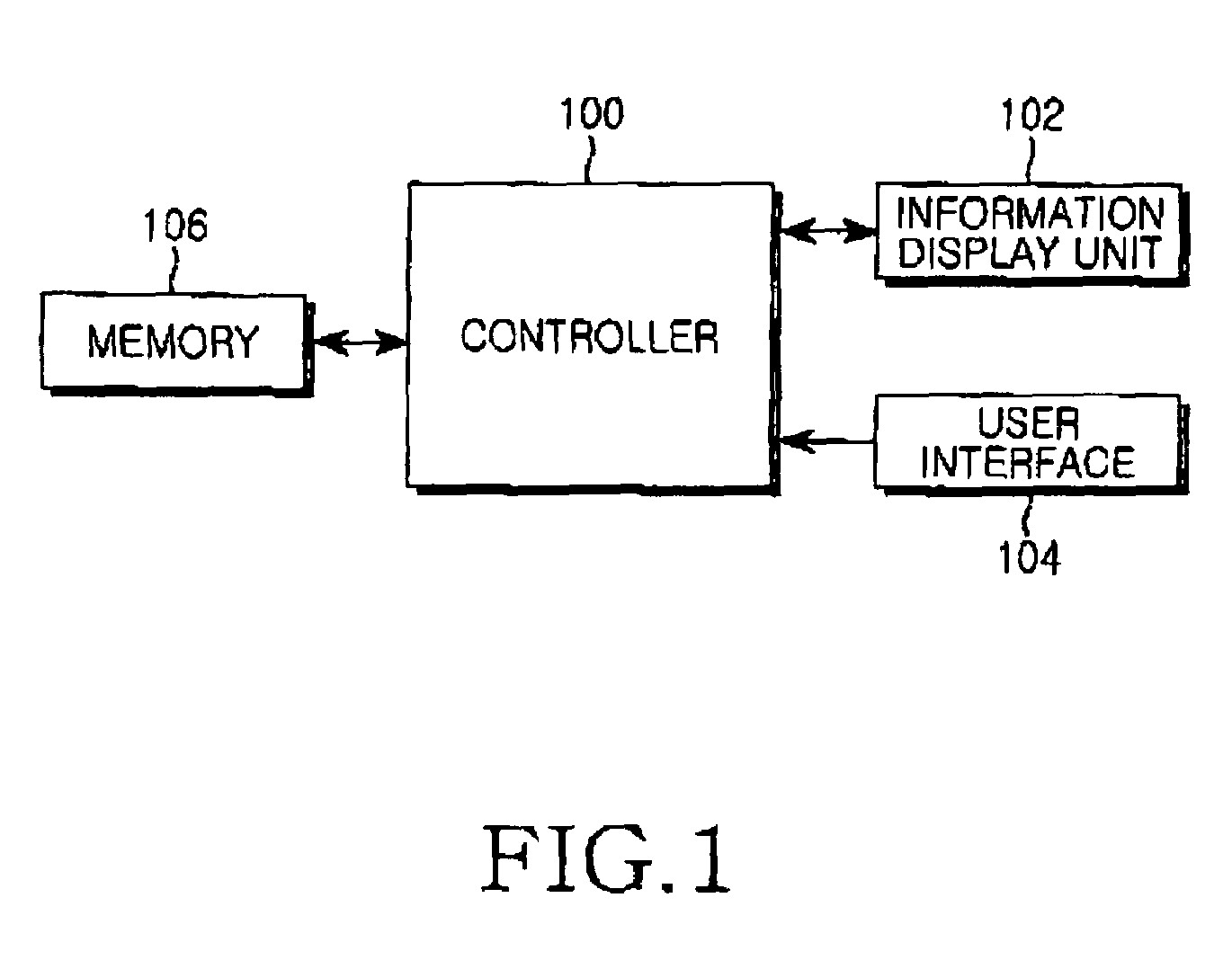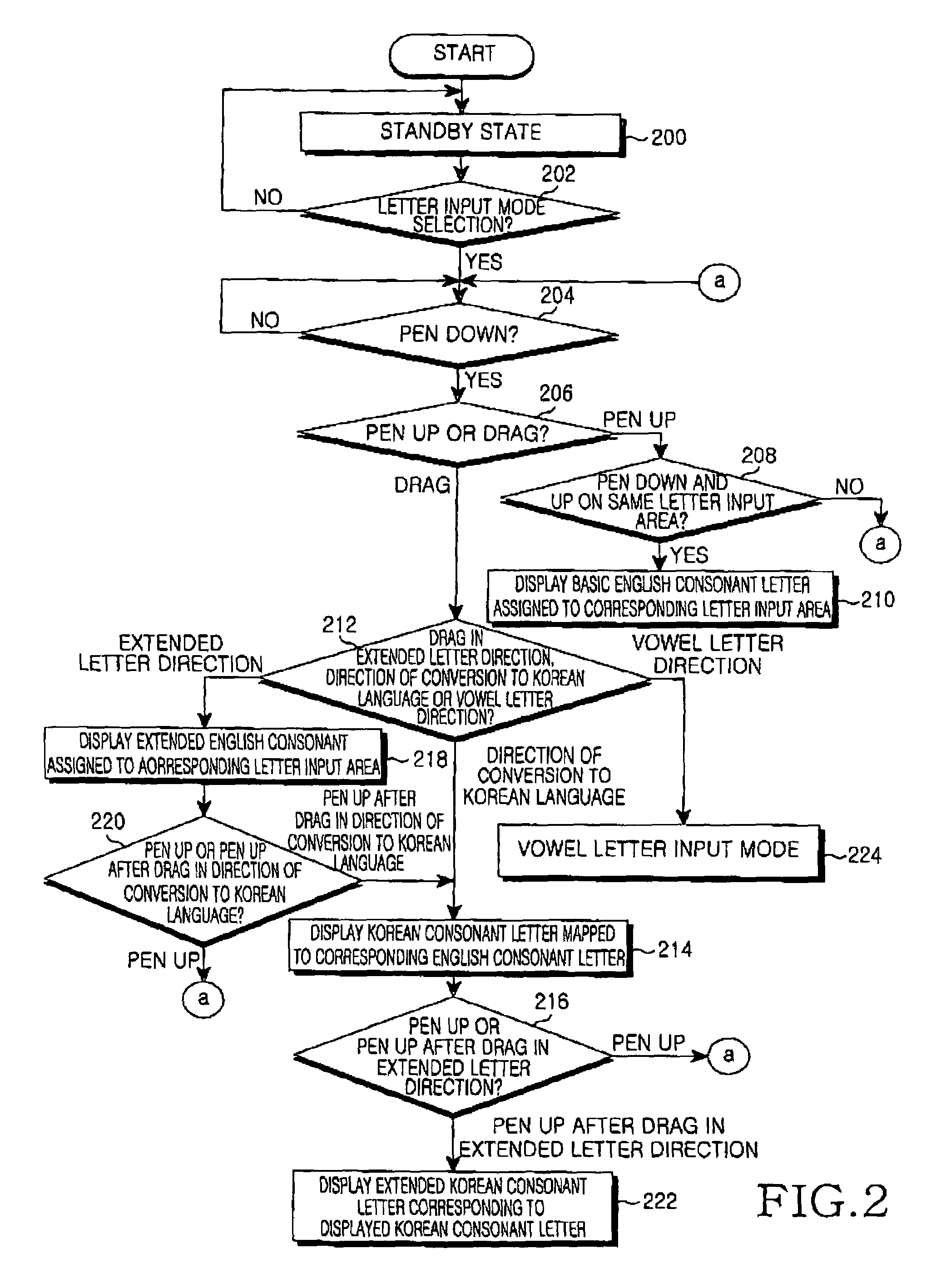Apparatus and method for letter recognition
a letter recognition and letter recognition technology, applied in the field of user interface, can solve the problems of mode switching operation, inconvenient user, inconvenient user, etc., and achieve the effect of reducing the size of the displayed soft keyboard, and quickly and correctly detecting the type of letters
- Summary
- Abstract
- Description
- Claims
- Application Information
AI Technical Summary
Benefits of technology
Problems solved by technology
Method used
Image
Examples
first embodiment
[0034]A configuration of the soft keyboard for inputting letters will be described with reference to FIG. 4 that shows the soft keyboard displayed on the touch screen, that is, the user interface 104, in accordance with the present invention.
[0035]The soft keyboard includes twelve (i.e. 1st-12th) areas. Furthermore, the 1st to 12th areas for a letter input are also referred to as letter input areas. Here, the letter input areas are displayed on the touch screen. Consonant letters of a first language that are divided into a plurality of pairs of basic consonant letters and extended consonant letters of the first language are assigned to the letter input areas. The basic consonant letters and the extended consonant letters of the first language are mapped and assigned to basic consonant letters and extended consonant letters of a second language.
[0036]In accordance with the present invention, the extended letters have forms similar to the basic letters. That is, an extended letter req...
second embodiment
[0060]A process for switching the language mode and inputting an extended letter according to a pen drag direction on the touch screen on which the soft keyboard shown in FIG. 9 is displayed will be described with reference to FIG. 10. FIG. 10 shows pen drag directions for inputting vowel letters, a pen drag direction for switching the language mode to the Japanese language mode and pen drag directions for inputting extended letters in accordance with the present invention.
[0061]Referring to FIG. 10, a direction 10 is a pen drag direction for switching the English language mode to the Japanese language mode. For example, when a pen drag is performed in the direction 10 on the 1st area, “” can be inputted. That is, when a pen drag input is performed in the direction 10 on the 1st area, the controller 100 recognizes the fact that the “” has been inputted. Additionally, a direction 12 is a pen drag direction for inputting an extended English / Japanese letter as the extended letter direc...
PUM
 Login to View More
Login to View More Abstract
Description
Claims
Application Information
 Login to View More
Login to View More - R&D
- Intellectual Property
- Life Sciences
- Materials
- Tech Scout
- Unparalleled Data Quality
- Higher Quality Content
- 60% Fewer Hallucinations
Browse by: Latest US Patents, China's latest patents, Technical Efficacy Thesaurus, Application Domain, Technology Topic, Popular Technical Reports.
© 2025 PatSnap. All rights reserved.Legal|Privacy policy|Modern Slavery Act Transparency Statement|Sitemap|About US| Contact US: help@patsnap.com



